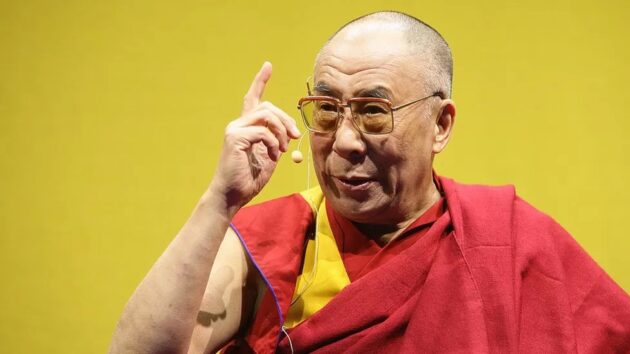
U.S. Officials Hold Rare High-Level Meeting with Dalai Lama in New York » Capital News
Aug 29 – Senior U.S. officials met with the Dalai Lama in New York on Wednesday, marking a rare high-level engagement between Washington and the exiled Tibetan spiritual leader, as confirmed by the State Department.
The Dalai Lama, often criticized by Beijing as a separatist, met with Uzra Zeya, a senior State Department official, and Kelly Razzouk, a White House National Security Council official. The meeting took place in New York, where the Dalai Lama is receiving medical treatment.
During the discussions, Zeya reaffirmed the U.S. commitment to promoting the human rights of Tibetans and supporting efforts to preserve their unique historical, linguistic, cultural, and religious heritage.
Beijing, which views Tibet as an integral part of its territory, has strict controls over the region and denounces the Dalai Lama, who advocates for greater autonomy for Tibet, as a dissident.
Zeya also discussed U.S. support for the resumption of dialogue between the People’s Republic of China (PRC) and the Dalai Lama and his representatives, according to a statement. Talks between Beijing and Tibetan leaders have been stalled since 2010.
China responded on Thursday by condemning the meeting, accusing the Dalai Lama of being “a political exile engaged in anti-China separatist activities under the guise of religion.”
“China firmly opposes any country allowing the Dalai Lama to visit under any pretext and strongly opposes any form of meetings between government officials of any country and the Dalai Lama,” said foreign ministry spokesperson Mao Ning. She added that Beijing had lodged a strong protest with Washington.
The Dalai Lama, 89, underwent knee surgery in New York earlier this year and reported a good recovery in a statement released in July.
He stepped down as the political head of the Tibetan people in 2011, handing over secular power to a democratically elected government representing around 130,000 Tibetans worldwide.
In July, China sanctioned a U.S. lawmaker for “interference” due to his support for Tibetans, following the U.S. Congress’s passage of a law to strengthen support for Tibet and after senior U.S. lawmakers met with the Dalai Lama in India.
China took control of Tibet in 1951, leading the Dalai Lama to flee into exile in 1959. Tibet had largely remained autonomous following the fall of the Qing dynasty, which had ruled for three centuries.
